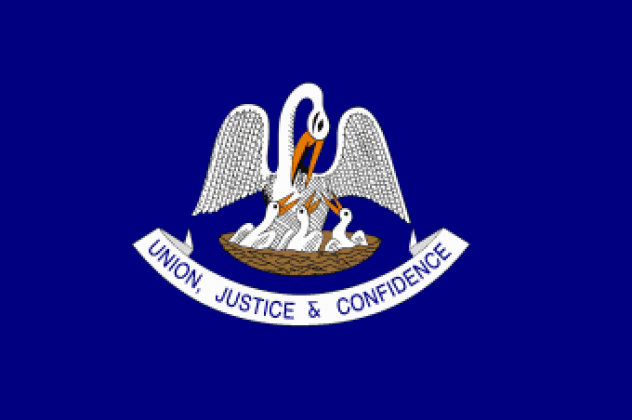
Jeremy Alford / LaPolitics.com
An actual announcement may or may not be forthcoming, but various bits and pieces for a gubernatorial bid by U.S. Sen. John Kennedy are being put together.
According to senior campaign staffers, Kennedy met with advisors late last month and has since cleared media consultant Fred Davis to begin work on the 2019 cycle, indicating to some that the junior senator at least wants to be ready should he actually reach for the brass ring of Louisiana politics.
The California-based Davis, who has worked with Kennedy in the past, confirmed his marching orders.
“My gut feels he’s pretty serious,” Davis told LaPolitics.
The window of opportunity for the senator appears wide open. When Kennedy ran for the U.S. Senate in 2008, he announced in November 2007. For the 2016 Senate race, Kennedy was an official candidate by February of that year.
Aside from Gov. John Bel Edwards, the only other recent moves of note for the 2019 contest have originated with Baton Rouge businessman Eddie Rispone, who has formed an exploratory committee.
The other potential candidates include Attorney General Jeff Landry of New Iberia, Congressman Ralph Abraham of Alto, state Sen. Sharon Hewitt of Covington and Louisiana Association of Business and Industry President Stephen Waguespack of Baton Rouge. All are Republicans.
Political History: Uncle Harry’s 32-year streak
Before term limits started sending politicians home, some folks viewed elected office in Louisiana as a lifetime ticket to security.
That was particularly true at the turn of the century. (As in 1900, not 2000.) If you did a good job, the voters — your people — would keep you in the luxurious lap of governance.
That’s not the case with the Bayou State’s big elected jobs these days. Governors can only serve two consecutive terms, thanks to “Big John” McKeithen, who created the second term before becoming the first governor to reap its benefits.
And state legislators are permitted just three consecutive terms, courtesy of David Vitter, the former state representative who graduated to the U.S. Senate.
To find a lifetime gig now, candidates either run local or dip into Louisiana’s pool of other statewide elected offices. With no terms restricting their terms, the positions that offer true legacy-building possibilities are lieutenant governor; secretary of state; treasurer; attorney general; commissioner of agriculture and forestry; and commissioner of insurance.
The gold standard for elongating the duration of these offices belongs to Harry D. Wilson. Interestingly enough, he was the father of famed Cajun personality Justin Wilson, who was the focus of his own history segment in this space recently.
Known to voters as “Mister Harry” or “Uncle Harry,” the elder Wilson was elected as agriculture commissioner in 1916 and served 32 years before dying in office at the age of 78. While a heck of a run on its own, an identical 32 years was served by late Secretary of State Wade O. Martin.
Uncle Harry “helped develop the seed laboratory and pushed for an increase in entomological work within the department” and “created an agricultural museum in the basement of the Capitol with a colorful display of Louisiana’s diverse agriculture industry and touted Louisiana products as ‘the finest anywhere,’” according to the agriculture department’s Market Bulletin, a publication that Wilson created.
Not to be outsized by what the future held for his talented son, Uncle Harry had already made a name for himself by the time he became a three-decade commissioner. He stood for Tangipahoa Parish for two terms in the state House of Representatives, beginning in 1900. While in the lower chamber, he also became a local legend by leading the charge for the creation of the town of Independence — with the help of then-Gov. William Wright Heard.
Originally elected as an independent, he soon became aligned with the populist faction of the Louisiana Democratic Party. In Huey Long, author T. Harry Williams acknowledges that Uncle Harry was largely indifferent to the Kingfish and his antics, preferring to manage his department and stay out of the governor’s way. Nonetheless, his name would be on the Long tickets for the remainder of his career.
In the end, the only label that carried weight with Uncle Harry was that of an Independence native. Home is what mattered most, which was evidenced by his parting words. According to Market Bulletin, Uncle Harry left us following a seven-day coma. As he lay dying in a Baton Rouge hospital, Uncle Harry momentarily regained consciousness and made a final request of a nearby nurse.
“Turn me toward Tangipahoa.”
They Said It
“He was a sailor, and he could cuss with the best of them. But he was also a lovable guy.”
—U.S. Sen. John Kennedy, on late U.S. Sen. John McCain, on Fox 44
“This is the most scrutinized project since riverboat gambling.”
—State Agriculture Commissioner Mike Strain, on medical marijuana, in The News-Star
For more Louisiana political news, visit www.LaPolitics.com or follow Jeremy Alford on Twitter @LaPoliticsNow.
